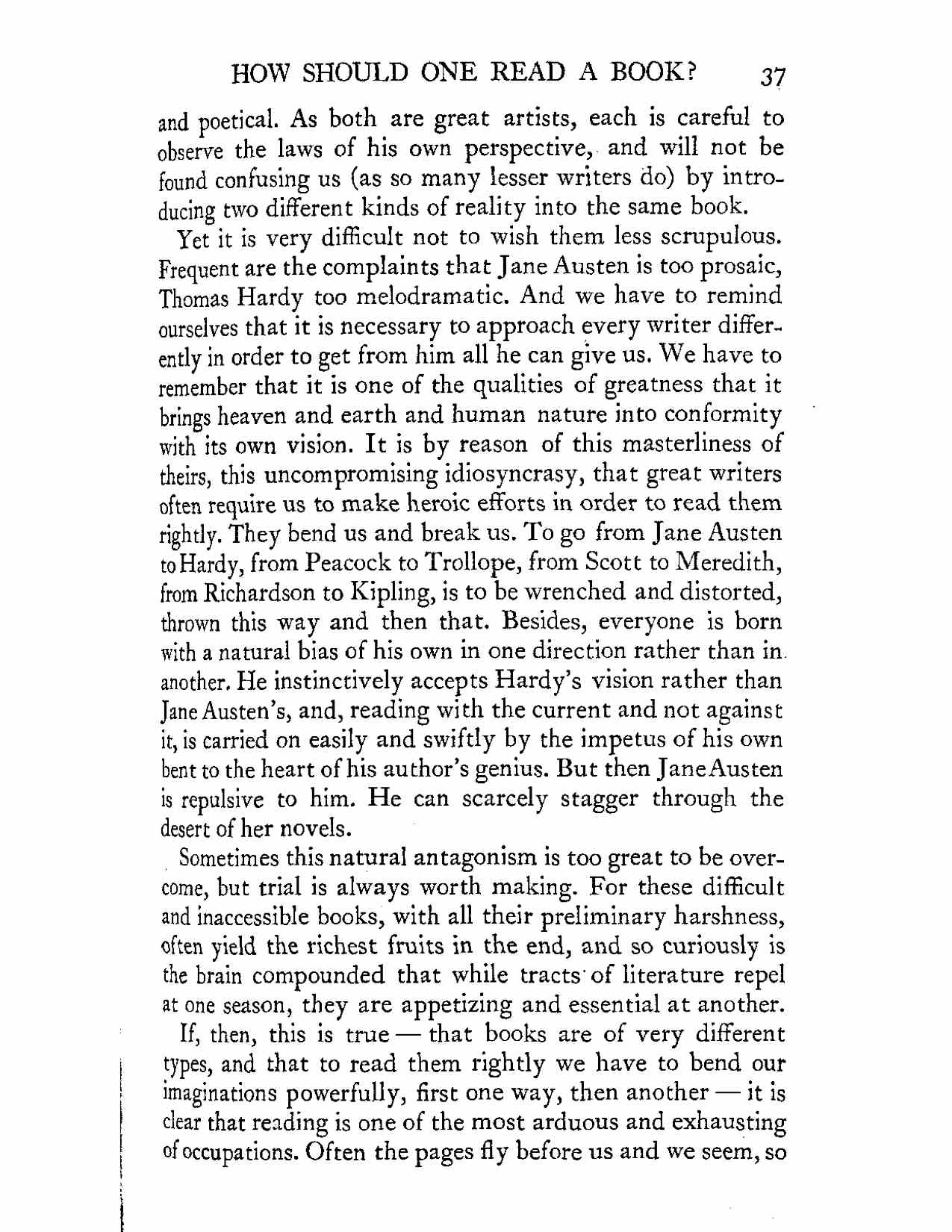
and poetical. As both are great artists, each is careful to
observe the laws of his own perspective, and will not be
found confusing us (as so many lesser writers do) by intro-
ducing two different kinds of reality into the same book.
Yet it is very difficult not to wish them less scrupulous.
Frequent are the complaints that Jane Austen is too prosaic,
Thomas Hardy too melodramatic. And we have to remind
ourselves that it is necessary to approach every writer differ-
ently in order to get from him all he can give us. We have to
remember that it is one of the qualities of greatness that it
brings heaven and earth and human nature into conformity
with its own vision. It is by reason of this masterliness of
theirs, this uncompromising idiosyncrasy, that great writers
often require us to make heroic efforts in order to read them
rightly. They bend us and break us. To go from Jane Austen
to Hardy, from Peacock to Trollope, from Scott to Meredith,
from Richardson to Kipling, is to be wrenched and distorted,
thrown this way and then that. Besides, everyone is born
with a natural bias of his own in one direction rather than in
another. He instinctively accepts Hardy’s vision rather than
Jane Austen’s, and, reading with the current and not against
it, is carried on easily and swiftly by the impetus of his own
bent to the heart of his author’s genius. But then Jane Austen
is repulsive to him. He can scarcely stagger through the
desert of her novels.
Sometimes this natural antagonism is too great to be over-
come, but trial is always worth making. For these difficult
and inaccessible books, with all their preliminary harshness,
often yield the richest fruits in the end, and so curiously is
the brain compounded that while tracts of literature repel
at one season, they are appetizing and essential at another.
If, then, this is true—that books are of very different
types, and that to read them rightly we have to bend our
imaginations powerfully, first one way, then another—it is
clear that reading is one of the most arduous and exhausting
of occupations. Often the pages fly before us and we seem, so






